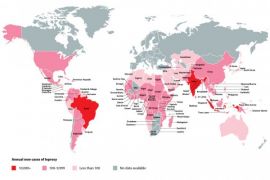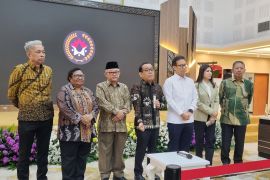Naturally found in 60 percent of insects, Wolbachia bacteria can curb the replication of the dengue virus within the body of the Aedes aegypti mosquito, thereby reducing its ability to transmit the disease.
"Brazil uses Wolbachia-infected mosquitoes massively, even though the world's first pilot project was in Yogyakarta (of Indonesia)," he said during the summit, which discussed dengue fever in the world.
According to Budi, Brazil uses Wolbachia-infected mosquitoes due to its high dengue fever cases and death rate, which are much higher than Indonesia's.
The experience of other countries will provide scientific evidence for using the Wolbachia method to combat dengue fever.
Budi said that when other areas in Indonesia, including Bali, were recording increasing cases of dengue fever, infections were stable in Yogyakarta thanks to the use of the method.
"Actually, the negative impact of Wolbachia is based on misconceptions," he said. "We are also using the method in Bandung, Jakarta, and Kupang."
During the summit, he participated in a dialogue with ministers and health delegates from other countries, exchanging ideas regarding efforts to suppress dengue fever, which is on the rise in Southeast Asia and America.
Budi also discussed Indonesia's successful surveillance efforts, which combine technology used in most countries with a targeted grassroots approach through community health centers.
Related news: Climate change driving up dengue infections: Ministry
Related news: Dengue fever deaths in Indonesia up 179 percent
Translator: Ni Putu Putri Muliantari, Cindy Frishanti Octavia
Editor: Anton Santoso
Copyright © ANTARA 2024












